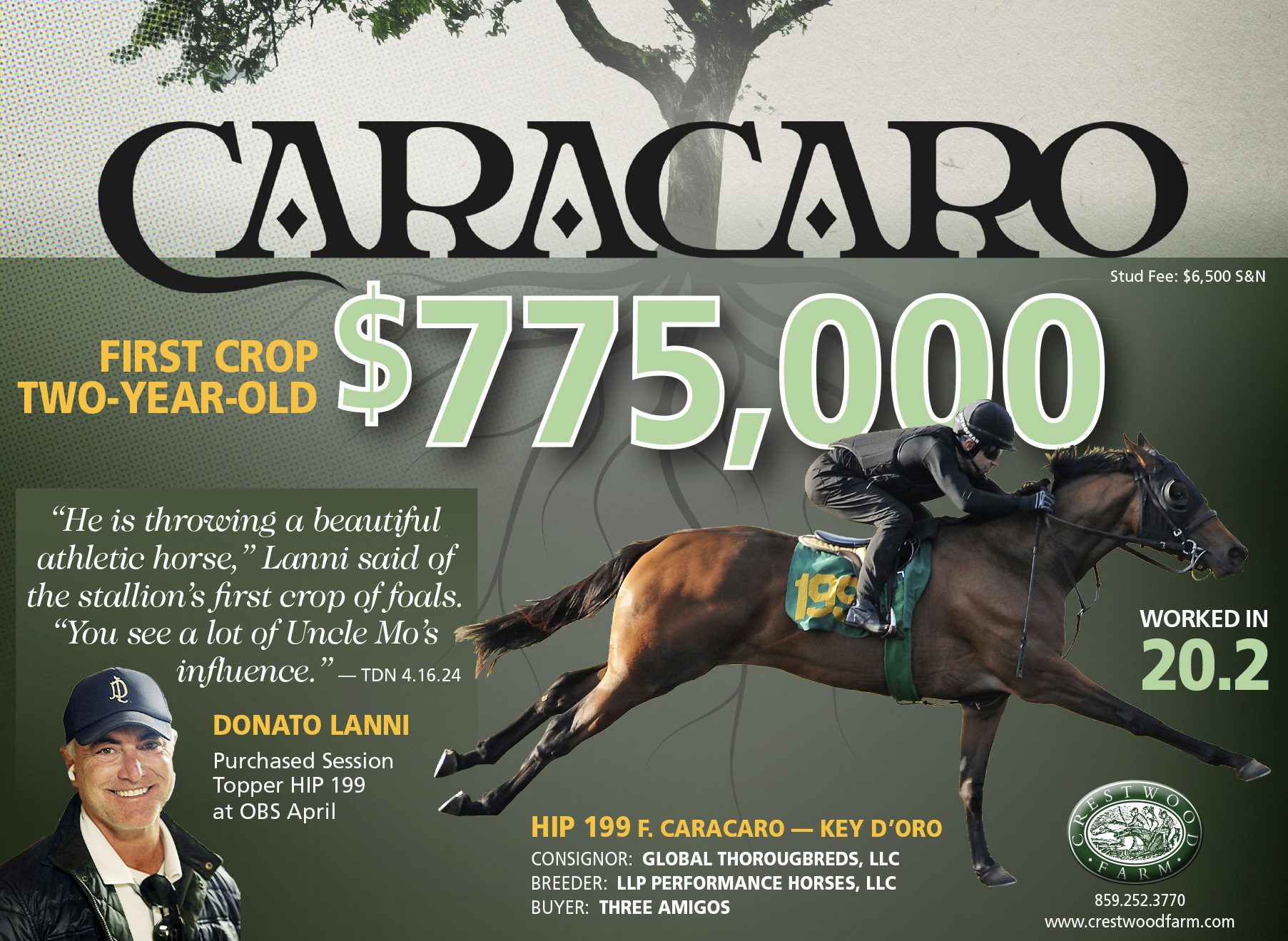Computer Assisted Wagering (CAW) has been a hot topic of late. What we know is that there are a handful gamblers that use computer algorithms to formulate their wagers, are allowed to make their bets at the very last second and receive substantial rebates. But there's a lot we don't know, like how much are they betting, what pools they most prefer and what affect has that had on the “regular” player? In his latest report for the Thoroughbred Idea Foundation (TIF), entitled Sharks & Minnows, TIF Executive Director Pat Cummings dug into the issue. To find out more about his findings, the TDN Writers' Room podcast presented by Keeneland was joined this week by Cummings. He was the Green Group Guest of the Week.
Using data from Del Mar, Cummings concluded that CAW players are betting more each year and that the amount of betting from “everyone else” is declining.
“Not only are the sharks growing, but the minnows are declining,” he said. “For the first time in this paper, were able to really separate how the CAW play has grown and how all other customers have in almost every pool shrunk. Total handle figures are often marketed in the industry press releases, they're touted. It looks like on an annual basis that not a whole lot has changed. That's not telling us the accurate picture. For years now, the Thoroughbred Idea Foundation has wanted to really dive into who's betting, how are they betting, how are they participating and how is the market changing? What we're seeing now more clearly than ever before is what's happening with all other customers. We're talking about people that may bet $10 a year or maybe even $2 million a year. They are a smaller percentage of the pools and declining.”
When asked if this could lead to a “doomsday” scenario, whereby the “sharks” have driven all the “minnows” out of the game, Cummings said that is in fact a concern.
“I'd call it a real threat,” he said. “And I would suggest that some of the biggest sharks are eating some of the smaller ones too.”
He estimated that CAW players now account for 33% of the total handle in U.S. racing
Cummings is not in favor of banning CAW players. He recognizes that if they go away overall handle would plummet, which could be catastrophic. The answer he says is to find ways to level the playing field when it comes to the sharks versus the minnows, starting with the takeout.
“Takeout rates have not come down commensurate with all of this money coming in (from CAW players) at low price points and driven by technology,” he said. “That's the opposite experience that investors have had in almost all other areas, where we have seen costs for customers come crashing down. The days of the $35 stock commission are long gone. And yet 50, 60, maybe even 70% of all trading on the stock market now is high-frequency trading. Ordinary investors in 401Ks and IRAs, regular mutual fund holders, exchange traded funds, different products have been created to allow ordinary investors to buy and hold. And their costs have come down from where they were 20 years ago. We have not seen that same evolution in American horse racing wagering, which remains one of the most expensive gambles out there.”
Cummings also called on the industry to end all jackpot bets. He has found that not only do they keep money out of circulation by cutting down on churn, but that the CAW players often come in and take home a disproportionate amount of the pool at the expense of the regular player.
“If you run a parimutuel wagering business and your goal is to keep collecting commissions on parimutuel wagering, then why introduce a bet that limits the number of times that a customer can keep coming back to your window and churning their money?” he said. “You're going in the complete opposite direction to all traditional business logic, which is you should drive customers back into your wagering pools. Yet, tracks continued to persist with these bets. The jackpots need to go as quickly as possible. Tracks need to revert to a traditional play, get that daily payout, get that churn up. The sport needs churn. It's better for every stakeholder along the way.”
Elsewhere on the podcast, which is also sponsored by Coolmore,https://lanesend.com/ the Pennsylvania Horse Breeders Association, Kentucky Thoroughbred Owners and Breeders, 1/st Racing, WinStar Farm, Lane's End, XBTV.com and https://www.threechimneys.com/ West Point Thoroughbreds, the team of Bill Finley, Randy Moss and T.D. Thornton, took a look at the win by Two Phil's (Hard Spun) in the GIII Ohio Derby and his subsequent injury and retirement. There was a look back at the Royal Ascot meet, where one of the highlights was the win by the U.S. based 2-year-old filly Crimson Advocate (Nyquist) in the G2 Queen Mary S., and a look ahead at Saturday's GI Stephen Foster S. at Ellis Park. The podcastwrapped up with a discussion on a new proposed rule by the New York Gaming Commission which would require all horses to undergo checks by a veterinarian 72 hours prior to a race or a workout.
Click here to watch the Writers' Room podcast or here for the audio-only version.
Not a subscriber? Click here to sign up for the daily PDF or alerts.






